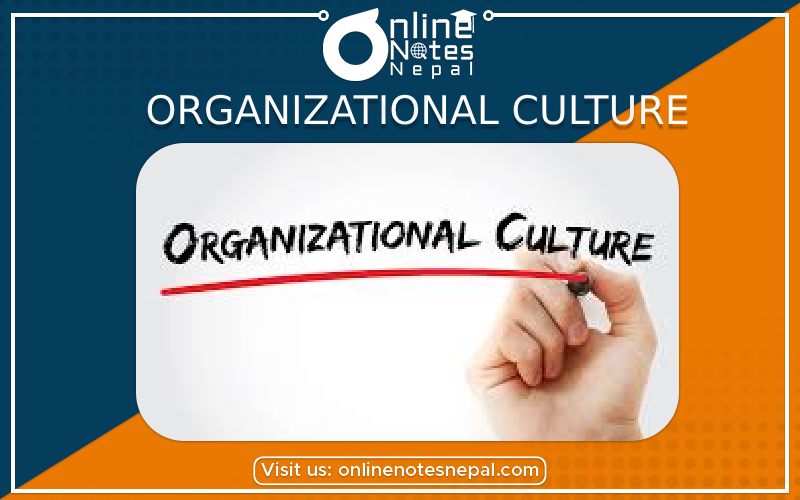Published by: Dikshya
Published date: 27 Jul 2023

Organizational culture refers to the shared values, beliefs, norms, customs, and practices that define the unique social and psychological environment of an organization. It is the collective mindset of the employees and represents the organization's identity, personality, and way of doing things. Organizational culture influences how employees behave, interact, and make decisions within the organization.
Importance of Organizational Culture:
1. Employee Engagement: A positive and strong organizational culture fosters employee engagement, job satisfaction, and loyalty. When employees feel connected to the values and mission of the organization, they are more likely to be motivated and committed to their work.
2. Retention and Attraction of Talent: A healthy organizational culture attracts top talent and reduces employee turnover. People are inclined to work in environments that align with their values and where they feel a sense of belonging.
3. Performance and Productivity: A well-defined culture can enhance teamwork, cooperation, and collaboration among employees. When everyone shares common goals and values, it improves overall performance and productivity.
4. Innovation and Adaptability: A culture that encourages innovation, risk-taking, and learning fosters creativity and adaptability. Employees feel comfortable suggesting new ideas and experimenting with different approaches, which can lead to organizational growth and success.
5. Customer Relations: Organizational culture can also impact how employees interact with customers. A positive culture that prioritizes customer satisfaction can lead to better customer service and long-term customer loyalty.
6. Organizational Reputation: A strong culture can shape the organization's reputation positively. A positive reputation attracts customers, partners, investors, and other stakeholders, providing a competitive advantage in the market.
Characteristics of Organizational Culture:
1. Values and Beliefs: Organizational culture is built on a set of core values and beliefs that guide decision-making and behavior within the organization. These values may include honesty, integrity, customer-centricity, innovation, etc.
2. Norms and Rituals: Norms are unwritten rules that govern acceptable behavior within the organization. Rituals, ceremonies, and traditions are also essential aspects of culture that help reinforce shared values and foster a sense of community.
3. Language and Communication: The language used within the organization reflects its culture. Certain phrases, jargon, and expressions are unique to the organization and its members. Effective communication is vital for transmitting and reinforcing cultural norms.
4. Leadership Style: Organizational culture is influenced by the leadership style of top management. Leaders play a crucial role in shaping culture by demonstrating and promoting desired values and behaviors.
5. Socialization and Onboarding: New employees are socialized into the organizational culture through orientation programs and onboarding processes. This helps them understand the values, norms, and expectations of the organization.
6. Adaptability: Organizational culture should be adaptable to changing circumstances and challenges. A flexible culture enables the organization to respond effectively to market dynamics and emerging trends.
7. Recognition and Rewards: The way employees are recognized and rewarded for their contributions reflects the cultural priorities of the organization. Rewarding behaviors that align with the desired culture reinforces those behaviors.
8. Conflict Resolution: How conflicts are handled within the organization reveals aspects of its culture. A culture that encourages open communication and respectful conflict resolution is more conducive to healthy relationships and growth.
In conclusion, organizational culture is a fundamental aspect of any successful organization. It shapes employee behavior, influences organizational performance, and plays a crucial role in attracting and retaining talent. By fostering a positive and strong culture, organizations can create a competitive advantage and achieve long-term success.